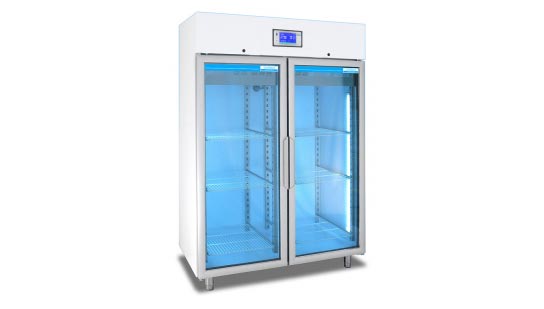
In order to ensure quality assurance in laboratories, in 1978 the U.S. Food and Drug Administration (FDA) introduced the good laboratory practice (GLP). Since then, the directive has been regarded as a uniform regulation for laboratories working in the preclinical field. Compliance with GLP provides a formal framework by which safety testing of pharmaceuticals or chemicals can be performed in a uniform and conscientious manner. GLP is now legally binding for quality assurance in the laboratories in many countries, including Germany.
In the 1970s, the FDA had identified some considerable deficiencies in newly registered pharmaceutical products, which is why GLP was introduced. Incidents like the thalidomide scandal were, among others, indicative of the need to introduce such a directive. GLP compliance ensures more careful testing and quality assurance in the laboratory and prevents defective pharmaceuticals from finding their way to the end consumer. This should prevent the occurrence of further scandals.
Staff requirements and documentation obligation according to GLP
GLP provides precise testing measures for quality assurance in the laboratory, which must be strictly adhered to. First of all, it is necessary to define and recruite the appropriate staff. Essentially, this involves an audit manager who monitors compliance with GLP, as well as testing personnel and quality assurance personnel in the laboratory. The responsibilities of the test manager include the creation of an inspection plan and the definition of standard operating procedures. These are additionally counter-checked by the quality assurance department. The inspection personnel adhere to the relevant specifications and carries out appropriate quality control. Here too, quality assurance serves as a second supervisor authority.
The utmost care is taken in the documentation at every stage of an audit process. Each individual work step must be precisely recorded. If individual aspects are not documented, they cannot be taken into account in a subsequent scientific evaluation. In addition, a summary test report shall be prepared by the inspector. All test results must be archived for 15 years. For this purpose, the laboratory must employ an independent person responsible for the archive. This person is the only one with access to the archive; others are only permitted access under his or her supervision. Archiving as well as the quality assurance within the laboratory can also be carried out by an external company.
What must be observed with laboratory equipment
All cooling and climatic products can be used for GLP-compliant work in laboratories. It is important that the laboratory equipment, such as medical refrigerators or incubators, reliably support the documentation of work processes. These should be capable to create detailed long-term protocols. In addition, the device must function properly. Among other things, this is ensured by qualification and calibration. Regular maintenance, possible repairs and a defined cleaning schedule are also mandatory. Only through the reliable functioning of the equipment can unambiguous test results be achieved.
tritec® will be happy to advise you on the selection of a suitable incubator, medical refrigerators or other laboratory equipment. We provide quality assurance in the laboratory with high-quality freezers for blood plasma, chromatographic refrigerators or climatic cabinets. We also support you in the qualification as well as the (re-)calibration of your equipment. We are at your disposal with our know-how and expertise so that you can always use your devices in accordance with GLP.

